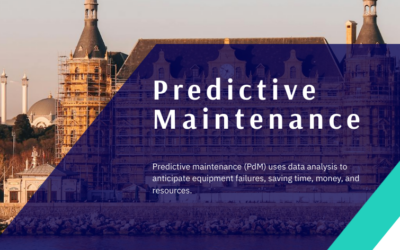Generating quality leads is fundamental for construction businesses aiming to grow and secure a steady pipeline of projects. Whether your focus is on residential or commercial work, there are numerous strategies to attract potential clients actively seeking construction services. Here, we explore actionable tactics to generate construction leads effectively, from digital marketing approaches to construction-specific methods.
1. Optimize Your Website for Lead Generation
Your website serves as the first impression for many prospective clients, making it essential to design it with lead generation in mind. Ensure each page includes a clear call to action (CTA) that encourages visitors to connect, request a quote, or subscribe to your newsletter. Thoughtful internal linking across your site can enhance user experience, guiding visitors to other relevant pages and encouraging them to stay engaged.
For example, incorporating features like a campaign management tool can streamline the user experience, allowing you to track interactions and optimize follow-ups with interested leads. These elements make it easy for clients to navigate, while improving search engine ranking by naturally guiding visitors through related resources.
2. Implement a Strong Content Marketing Strategy
Content marketing is one of the most effective ways to generate organic leads for construction businesses. By providing informative, helpful resources tailored to your audience, you can attract potential clients looking for guidance on topics like construction planning, budgeting, and project timelines. Regularly publishing high-quality content can also boost your search engine visibility, drawing in visitors actively searching for terms like “how to find construction leads” or “how to get construction job leads.”
Consider enhancing your content with targeted data, such as insights into lead generation tactics tailored to B2B SaaS, adapting these approaches to the construction industry. Content-driven pages with valuable information position your business as a knowledgeable resource, encouraging potential clients to reach out.
3. Harness the Power of Pay-Per-Click (PPC) Advertising
To generate leads quickly, PPC advertising can be an invaluable tool. By bidding on relevant keywords such as “commercial construction services” or “residential renovations,” your ads can appear at the top of search engine results, making your services highly visible to potential clients. PPC advertising works well for businesses that want to drive traffic immediately and target leads searching for specific types of construction work.
A well-structured PPC strategy helps ensure that your budget aligns with high-value keywords and effectively targets your desired audience. Campaigns can also be fine-tuned using marketing automation tools to analyze performance metrics, making it easier to adapt based on results.
4. Build Connections Through Social Media
Social media platforms—particularly LinkedIn, Facebook, and Instagram—are essential for building a recognizable brand and connecting with potential clients. By sharing updates on current projects, industry insights, and client success stories, you demonstrate credibility and engage with a wider audience. Visual platforms like Instagram are especially effective for showing before-and-after project photos, while LinkedIn can help with professional networking and commercial lead generation.
On these platforms, leverage data standardization and audience segmentation to tailor posts to specific client groups, further enhancing engagement with prospective leads. This approach can create opportunities to engage with decision-makers in the commercial space, expanding your reach and helping convert followers into clients.
5. Utilize Email Marketing for Direct Engagement
An effective email marketing strategy helps nurture leads over time by maintaining consistent communication with prospective clients. Regular newsletters can showcase your company’s expertise, highlight recent projects, and share valuable insights relevant to the construction industry. If your business has not yet set up an automated email system, consider marketing automation tools to streamline and personalize email campaigns for different segments of your audience.
Automated email workflows can be designed to target different phases of the buyer’s journey, from initial inquiries to long-term follow-ups. To further personalize email content, incorporate custom content tailored to the client’s specific interests or past engagements with your website.
6. Leverage Data-Driven Marketing Tactics
Data-driven approaches can significantly enhance your lead generation efforts, especially for B2B or commercial leads. By analyzing insights from SIC code data and audience demographics, you can identify trends that resonate with potential clients and optimize campaigns to reach the most relevant leads. This tailored marketing strategy not only improves engagement rates but also increases the likelihood of generating high-quality leads.
Tracking key performance indicators (KPIs) such as click-through rates and conversions helps refine your targeting strategy, ensuring resources are focused on the most effective channels. Implementing data standardization techniques across campaigns can further enhance accuracy in targeting, ensuring that your marketing is optimized for reaching the right audience.
7. Network and Build Relationships Within the Industry
Industry events, trade shows, and local business networking can be highly effective for generating leads and building partnerships in construction. These in-person interactions help build trust and credibility with potential clients and give you a platform to showcase your expertise and completed projects.
Additionally, you can extend this networking approach to digital channels by engaging with industry-specific forums and platforms. These interactions not only attract potential leads but also position your company as a knowledgeable resource within the field. A consistent presence in both online and offline spaces will help foster long-term connections and increase the chances of turning new contacts into valuable leads.
8. Explore Free Lead Generation Options
When budget is tight, there are several effective methods to generate free construction leads. Start by optimizing your Google My Business listing, which helps potential clients find your business locally and access contact information, reviews, and directions. Google My Business is particularly valuable for businesses that rely on local traffic, making it easier for people in your area to find your services when searching for construction companies.
Additionally, social media groups and online forums can serve as excellent sources of free leads. Engage with community groups on platforms like Facebook and LinkedIn where people discuss local needs, projects, or ask for contractor recommendations. By answering questions and sharing expertise, you can build brand awareness and attract leads without paying for ads.
9. Implement Referral and Partnership Programs
One often-overlooked approach to lead generation is building a referral program. Incentivize past clients or industry partners to refer new clients to your business. Referrals often yield high-quality leads because they come from trusted sources and people who have firsthand experience with your services. Offer a small discount, gift card, or other rewards to clients who bring new leads to your business.
Partnerships with other companies in complementary industries, like architects, real estate agencies, or material suppliers, can also be fruitful. For instance, if you’re a construction company, collaborating with building maintenance providers or engineering consultants can open doors to mutual referrals and strengthen your brand reputation within the industry.
10. Use Data and Analytics to Refine Your Approach
Data and analytics are essential for refining your lead generation strategy over time. Using data standardization techniques can help you keep track of valuable insights, such as which sources yield the most leads, what content performs best, and which PPC keywords convert the highest. Tracking these metrics allows you to allocate resources more effectively and focus on tactics that generate the best ROI.
Consider using marketing automation platforms to manage this data and adjust campaigns in real time. With tools for audience segmentation and custom insights, you can create highly personalized marketing efforts that speak directly to different types of leads, whether they are residential clients or commercial developers. Analyzing these patterns consistently can reveal insights that help fine-tune your approach, ultimately increasing lead volume and quality over time.
11. Develop Case Studies and Testimonials
Showcasing successful projects is a powerful way to build credibility and generate leads. Case studies and testimonials provide social proof, demonstrating to potential clients that you deliver quality work and meet client expectations. When creating case studies, focus on the client’s challenge, the solution your team provided, and the positive outcome.
Add these case studies to your website, especially on pages that discuss your services in detail. Testimonials from satisfied clients can also be placed on your homepage and linked to more extensive case studies, creating an internal web that boosts SEO through internal linking while encouraging leads to explore further. Prospects are more likely to engage with companies that clearly display their successes and client satisfaction.
12. Target Commercial and Residential Leads with Custom Content
Lastly, it’s essential to tailor your marketing efforts to different types of leads—whether they’re residential homeowners or commercial property managers. By segmenting your content marketing to speak to these unique audiences, you can ensure your messages resonate with their specific needs and goals. For example, commercial clients may be more interested in budget management tips, while residential clients may prefer insights on design trends and renovation tips.
Use targeted demographic data to direct your content effectively. For instance, insights into audience demographics by industry and SIC code can help you identify which segments are more likely to respond to your campaigns, enabling a more tailored outreach approach. This allows you to position your business as a knowledgeable resource that can meet each audience’s distinct needs.
Engaging with the Community to Strengthen Brand Visibility
In the construction industry, building trust and recognition within the local community can have a substantial impact on lead generation. Sponsorships and community event participation demonstrate your company’s commitment to supporting local projects, which in turn creates an opportunity to meet potential clients. Supporting community initiatives, such as charity events or youth sports, establishes a personal connection with the community, allowing people to see your business as more than a service provider. This not only improves your reputation but makes your brand top of mind when prospective clients seek a reliable contractor.
In addition to physical involvement, engaging with online community groups or forums dedicated to local construction and real estate can be incredibly effective. Platforms like LinkedIn and Facebook feature groups where real estate agents, developers, and homeowners discuss local projects and needs. Joining these groups, sharing valuable insights, and actively responding to questions can build your online presence and establish your expertise in the field.
Leveraging CRM Systems for a Personalized Client Experience
A Customer Relationship Management (CRM) system is invaluable for tracking interactions and managing client relationships, allowing for a tailored communication strategy based on client history and needs. CRM platforms help organize leads, automate follow-ups, and provide insights into potential clients’ preferences, ensuring that no lead falls through the cracks. By setting up automated reminders or personalized messages, you can maintain engagement with leads at various stages of their decision-making process, from initial inquiry to project completion.
CRM systems are also integral to campaign management; they enable you to schedule targeted outreach efforts, such as email marketing campaigns for specific segments of your audience. If you’re offering a seasonal discount or hosting a local event, having a CRM makes it easy to track client interest, measure response rates, and adjust your approach to optimize engagement and conversion.
The Power of Free Consultations and Assessment Offers
Offering free consultations or project assessments is a proven way to attract serious leads. Free consultations allow potential clients to experience your expertise without commitment, providing them with value while giving you the chance to build rapport and understand their project needs. This approach allows you to demonstrate your industry knowledge and trustworthiness.
A free consultation also acts as a natural entry point for deeper, ongoing interactions that can lead to project proposals and contracts. This approach to lead generation, combined with a marketing automation tool that tracks interactions, enables you to follow up based on the specific interests expressed during the consultation, ultimately enhancing conversion rates by staying relevant to the client’s immediate needs.
Forming Strategic Partnerships with Complementary Businesses
Working closely with other local businesses in complementary fields can open doors to valuable referrals. Architects, real estate agents, property managers, and even local material suppliers can offer introductions to clients who may need construction services. Building a trusted network with these industry partners enables mutually beneficial referrals, where each business supports the other by recommending services to clients with complementary needs. Strategic alliances can increase your reach exponentially, helping you tap into new segments of the market.
For instance, if you have a strong network within the property management industry, you may be recommended to clients looking for reliable renovation or expansion work, reinforcing your brand’s authority and giving you access to leads that may have otherwise gone unnoticed.
Optimizing SEO and Digital Presence
Search Engine Optimization (SEO) is a cornerstone of effective lead generation for construction companies, driving organic traffic to your website by ranking highly in search engine results. Optimizing content with strategic keywords such as “construction lead generation” or “commercial renovation services” can make your website more accessible to people actively searching for your services. A strong SEO strategy involves not only keyword placement but also high-quality content that answers potential clients’ questions and showcases your expertise.
Effective SEO also includes thoughtful internal linking. Ensuring that your website is well-structured with links to relevant content, such as a page on custom content solutions, can improve user experience and encourage visitors to explore additional services, ultimately improving your conversion potential. An optimized website with easy navigation and high-value resources will keep visitors engaged, build trust, and make it more likely for them to reach out.
Data-Driven Lead Generation Through Analytics and Targeted Campaigns
Modern lead generation strategies are driven by data. By utilizing data standardization techniques and analyzing patterns in lead generation, you can identify which methods bring in the most high-quality leads, thereby refining your approach over time. Tracking key performance indicators such as conversion rates, click-through rates, and the performance of specific campaigns provides insights into what’s working and what isn’t. Analytics also reveal demographic data that can help you refine your targeting, allowing you to reach segments of the market that are most likely to convert.
Combining this data with audience segmentation tools can help you craft targeted messaging that appeals directly to specific client types, such as commercial developers or residential homeowners. By analyzing the behaviors and interests of different client segments, you can tailor campaigns to meet their unique needs, which ultimately increases engagement rates and lead quality.
Building Trust Through Case Studies and Testimonials
Case studies and client testimonials can be powerful motivators for potential clients. These elements add credibility to your business by showing real-life examples of successful projects and client satisfaction. Detailed case studies that outline the challenges, solutions, and results of your past work serve as concrete proof of your company’s expertise and reliability.
For example, a case study about a complex renovation project can showcase your team’s problem-solving skills and attention to detail. Adding these success stories to your site and linking them to related services gives visitors a reason to trust you with their projects. Client testimonials, when placed strategically across service pages, provide further validation and can be particularly persuasive for first-time visitors.
Creating a Brand Identity that Resonates
Finally, cultivating a strong brand identity that reflects your values, work quality, and reliability is essential for differentiating your business from competitors. Consistent branding across all materials—website, social media, physical signage, and even uniforms—builds recognition and reinforces your professional image. This consistency fosters trust and makes your brand memorable for clients who may need construction services in the future.
A well-developed brand identity not only communicates what your business stands for but also resonates with clients on a personal level, helping them feel confident in choosing your services over others. Building a brand that conveys reliability, quality, and community support can significantly boost your lead generation efforts as potential clients feel they are partnering with a company that values integrity and excellence.
By combining community involvement, strategic partnerships, data-driven marketing, and a strong brand identity, construction companies can establish a comprehensive lead generation strategy that is both effective and sustainable. These high-level strategies position your business for success by consistently attracting and converting leads into valuable, long-term clients.







